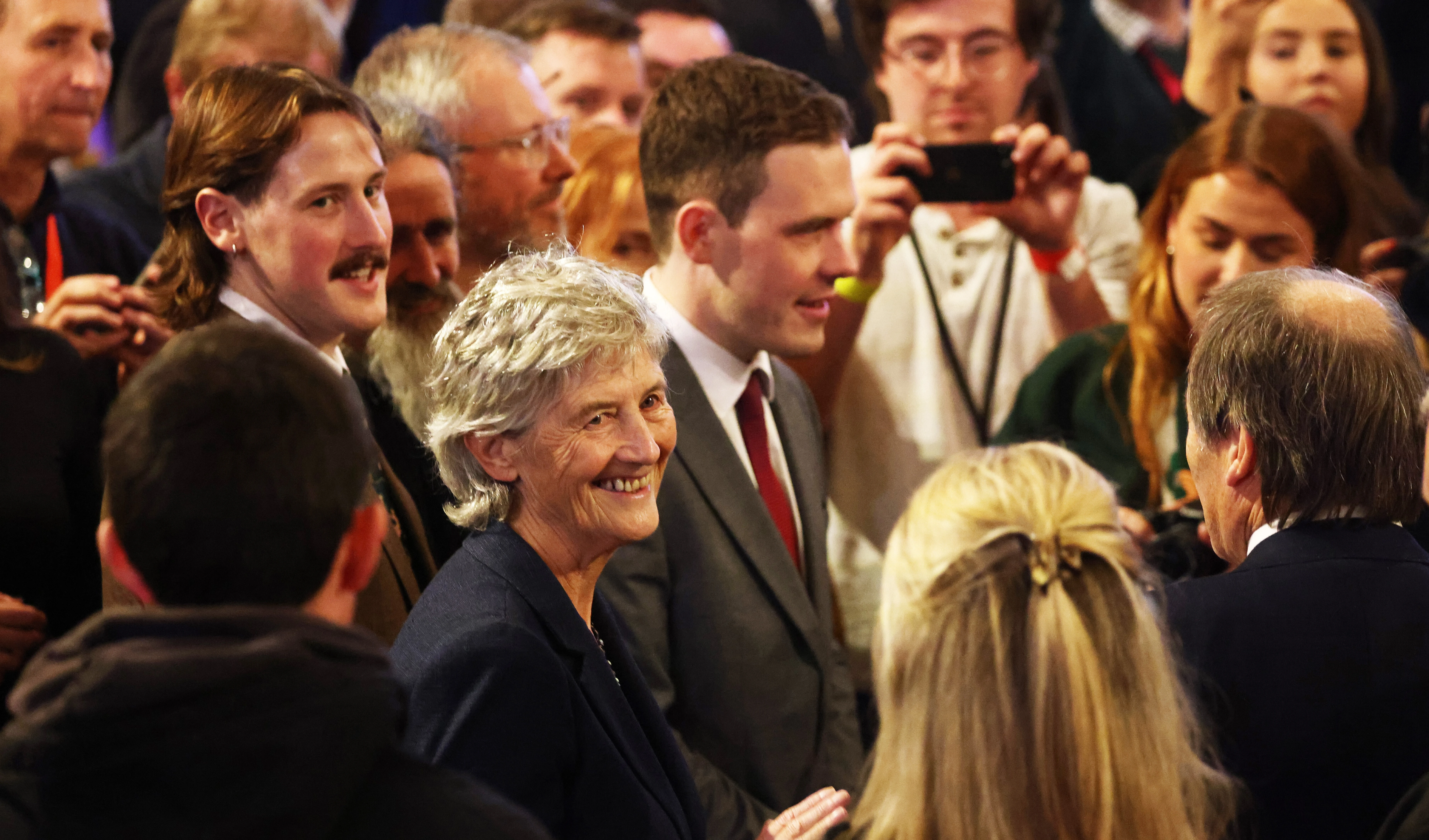French PM Bayrou faces no-confidence vote
Tensions mount in France as Macron’s weakened coalition, pressure from the National Rally, and Socialist opposition put Prime Minister Francois Bayrou’s leadership to the test.
-

France's President Emmanuel Macron shakes hands with France's Prime Minister Francois Bayrou as they attend a ceremony marking the 85th anniversary of late French General Charles de Gaulle's World War II resistance call of June 18, 1940, at the Mont-Valerien memorial in Suresnes, outside Paris, Wednesday June 18, 2025. (Alain Jocard, pool via AP)
French Prime Minister Francois Bayrou is expected to survive a no-confidence vote scheduled for Tuesday, but his political standing remains fragile just six months after his appointment.
Bayrou, appointed by French President Emmanuel Macron in December 2024, was tasked with stabilizing the political landscape following the turmoil of last summer’s snap legislative elections. The two-round vote in June and July 2024, intended to bolster Macron’s centrist bloc, instead strengthened the far-right National Rally (RN) led by Marine Le Pen. The result left the National Assembly fragmented and Macron’s coalition significantly weakened.
If the no-confidence motion succeeds, Macron would face the prospect of appointing a seventh prime minister during his presidency, a move that would further erode his authority with two years remaining in his term. Additionally, it could trigger early legislative elections, which become legally permissible again after July 8.
The no-confidence motion was introduced by the Socialist Party (PS), which expressed frustration over the collapse of pension reform talks. PS leader Olivier Faure stated, "We hope that Francois Bayrou will no longer be Prime Minister and that there will be real change, that there will be someone at the Matignon who can talk to us."
Bayrou dismissed the motion as a political maneuver, calling it a "joke" during an interview with RTL. He characterized the move as a symbolic gesture by the PS to demonstrate its opposition stance.
Motion unlikely to pass
While the motion is supported by various left-wing factions, it is unlikely to pass due to the expected abstention of Le Pen’s RN. Nevertheless, the far-right party has not ruled out backing future efforts to unseat Bayrou, especially during critical moments such as the 2026 budget debate in the autumn.
RN vice-president Sebastien Chenu signaled the possibility of fresh elections, stating, "Dissolution is necessary as soon as possible," and warned that the government's collapse could come "probably sooner than you think."
Bayrou criticized the prevailing political climate, questioning the commitment of rival parties to national progress. "Everyone is threatening, but who is taking care of the country's situation? What are the parties that are threatening a no-confidence vote doing to move the country forward?" he asked.
Further complicating the political landscape is Marine Le Pen's legal predicament. She awaits the outcome of an appeal in a fraud case that could disqualify her from contesting the 2027 presidential election. Meanwhile, internal tensions are rumored between Le Pen and her protégé Jordan Bardella, who may emerge as the RN's candidate if Le Pen is barred.
Analysts at Eurasia Group noted the failure of Bayrou’s strategy to form a stable majority by engaging moderate leftists while avoiding reliance on the far-right. They warn that while the current motion is expected to fail, the withdrawal of PS support leaves Bayrou vulnerable. According to their estimate, there is a 60% chance that RN and left-wing parties could unite to topple the government by autumn.
Addressing criticisms about his leadership style, Bayrou defended his disciplined lifestyle. "Come and see if there are any aperitifs. Never! If there are any dinners that drag on. Never! That’s not how I live. I live frugally," he told RTL.
As the political crisis unfolds, the position of the French prime minister remains under close scrutiny, with both allies and opponents weighing their next moves in an increasingly volatile environment.

 4 Min Read
4 Min Read










